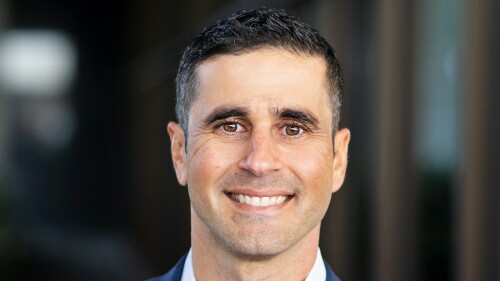Urban blight is the single biggest challenge to large-scale revitalization efforts underway in the city of Detroit, where roughly 84,000 properties and vacant lots are considered blighted or at risk of blight, according to Dan Gilbert, founder and CEO of Rock Ventures and Quicken Loans and cochair of the White House–commissioned Detroit Blight Removal Taskforce.
In an interview with DLA Piper attorney and ULI member Jay Hailey, Gilbert kicked off the Institute’s public/private partnership conference in Detroit. The conference explored how the public and private sectors can join forces with philanthropic institutions and nonprofit organizations to revive urban cores that have suffered population loss, disinvestment, and a shrinking tax base.
Two of Detroit’s major urban renewal projects—the M-1 Streetcar and ULI Urban Open Space Award–winner Campus Martius Park—are being pursued through partnerships among public agencies, private investors, foundations, and community nonprofit groups eager to see Detroit emerge from its $18 billion bankruptcy later this year a more vibrant and financially solvent city.
Gilbert and his family of companies are playing an unprecedented role in remaking Detroit’s downtown, investing $1.3 billion into commercial properties in a 7.2-square-mile (18.6 sq km) area. In 2009, Gilbert decided to relocate Quicken Loans—the largest online retailer of home mortgages—from disparate locations in the Detroit suburbs to several iconic downtown buildings. Since then, Rock Ventures has purchased or taken control of 50 properties where 12,000 employees, or “team members,” work across 8 million square feet (740,000 sq m) of office space.
For Gilbert, the move out of the suburbs has actually accelerated his company’s growth. “We are light-years ahead as a company because of the connectivity and the collaboration of people being in the urban core with each other,” he said.
Yet the downtown and midtown—an area directly to the north that has also received considerable reinvestment—are relatively small portions of Detroit’s total 138-square-mile (357 sq km) footprint. It’s in these inner-city neighborhoods where urban blight remains unaddressed, which could ultimately derail Detroit’s potential for a true comeback, Gilbert explained.
“There is no way that this downtown and midtown momentum can continue . . . and great stuff [keep] happening if the vast majority of Detroit’s neighborhoods continue to die,” Gilbert said. “It’s going to collapse. . . . This thing will start going the other way again if we don’t get the entire city involved.”
Blight is certainly not unique to Detroit; but perhaps nowhere else in the country is the situation as severe. The national media have so popularized photos of abandoned and burnt homes in Detroit that such images are now known as “ruin porn,” Gilbert said. Before jobs creation, education, and crime can be addressed, Detroit needs to engage in serious blight removal, which the task force estimates will cost the city $850 million.
“It’s very similar to a malignant cancer,” he said. “You can’t remove part of it or it grows back. You have to take the entire thing out. If you don’t take it all out, it will absolutely grow back. It’s demoralizing.”
To underscore how blight curtails the dreams of future generations, Gilbert gave the example of the many Detroit Public School students who tour the Quicken Loans headquarters and the other high-tech entrepreneurs downtown to understand the job creation and revitalization efforts happening in their hometown.
The children leave, feeling inspired to stay in school and to hope about their futures—feelings that, in Gilbert’s view, may be short-lived if blight across Detroit is not addressed. “Suppose those kids go back to their neighborhoods and they’re walking by six burned out, destroyed homes,” Gilbert said. “I don’t know how long the buzz lasts.”

![Western Plaza Improvements [1].jpg](https://cdn-ul.uli.org/dims4/default/15205ec/2147483647/strip/true/crop/1919x1078+0+0/resize/500x281!/quality/90/?url=https%3A%2F%2Fk2-prod-uli.s3.us-east-1.amazonaws.com%2Fbrightspot%2Fb4%2Ffa%2F5da7da1e442091ea01b5d8724354%2Fwestern-plaza-improvements-1.jpg)


